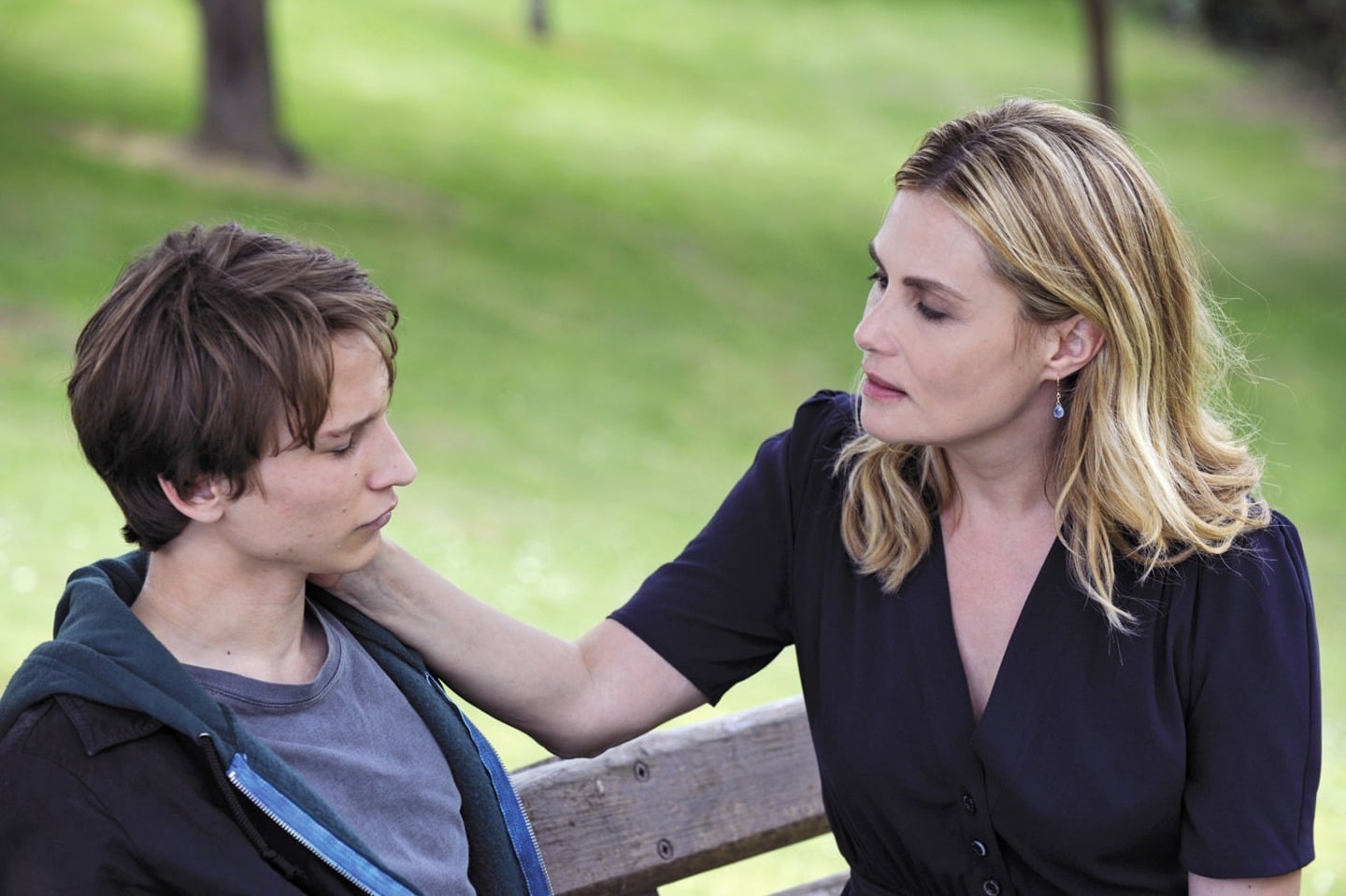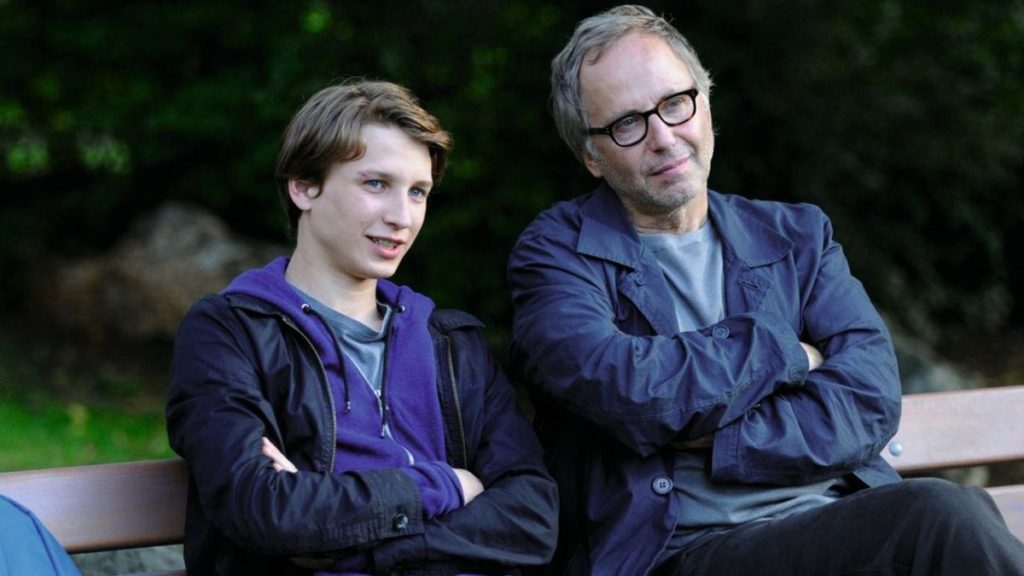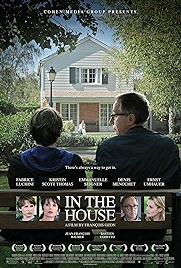If you’ve seen 5X2, you’ll already know that François Ozon makes immensely clever and highly entertaining films, and that there’s a point to the cleverness; he’s not just showing off. In the House, aka Dans La Maison, is Ozon to the bone, another very clever piece of work. This time, however, the point he’s making is far less immediately obvious.
5X2 was a love story played out backwards, the point being that, “forearmed” as we were with the knowledge that the relationship would crumble, we saw the couple in question’s first stirrings of love, courtship, marriage, honeymoon and so on through entirely different eyes. Here Ozon plays a similar trick, taking a Cuckoo in the Nest plot and wrapping it up in an examination of fiction and truth.
Fabrice Luchini plays Germain Germain, a jaded teacher of French who is wading through the marking of “what I did at the weekend” essays one night when he comes across something submitted by one of his pupils. It’s a startling story of how Claude, one of his teenage charges, courted fellow pupil Rapha, so he could gain access to the boy’s house, where he seems to have been leering after the kid’s mother Esther, (played by Emmanuelle Seigner). Unsettled, the teacher shows his wife (Kristin Scott Thomas) the unusual and seemingly confessional essay. She is as intrigued as he, but also appalled. Next day the teacher upbraids the boy for his stalking, who instead of backing down hands him the next instalment of the story, which ends, like the first one, with “A suivre…” (to be continued).
Aagainst his better judgment, the teacher reads on, and becomes completely, becoming not just an avid follower of the boy’s increasingly lurid exploits (is he going to seduce the mother? the son? surely not the father?), not just his literary mentor, but also, bit by bit, an agent provocateur. Ozon symbolises this brilliantly, by having Luchini suddenly popping up inside the boy’s retelling of his story to offer pointers.
Inside this vicious circle or feedback loop, on the one hand there’s a Damien tale of a monster inside a humdrum middle class family’s life. On the other there’s the teacher’s reactions to that story, and the effect his reactions have on the development of the boy’s story. And all the while the boy’s story is progressively taking over the teacher’s life. Fact and fiction become hopelessly intertwined, with the only seeming certainty being that, as is said several times, “the world needs stories”.
There is a student essay in here for someone with an interest in structuralism or deconstruction (both of which more or less take the view that nothing is certain or natural and that everything is made up – it’s all a big story).
For those of a more pragmatic, empirical nature, this is also a highly entertaining bit of farce, with Luchini perfectly cast – all hangdog one second, raised eyebrow the next – as the teacher in beyond the elbow, an invert of the Lolita figure of Humbert Humbert having rings run around him by an “innocent” kid. Ernst Umhauer plays the teenager, cleverer by far than his teacher, an inspired bit of casting – creepy, smooth skinned, attractive, with a hint of a smile that could be amusement or malice. Bisexual? Maybe. Unsettling is Ozon’s intention, I suspect, and Umhauer is certainly that.
Everyone else, including Scott Thomas and Emmanuelle Seigner, is a footnote. Apart, that is, from the father of the dolt, also called Rapha, played as a man so charged up with manly testosterone by Denis Ménochet, as so “natural” and unmediated in his actions and reactions that he stands in complete contradiction to the fey “everything is fictional” posturing of everyone else. And that, surely, is the point of Ozon’s film – there is fiction, there is fact and if we lose the distinction, we’re lost. French philosophers of the post 1968 tradition take note.
I am an Amazon affiliate
© Steve Morrissey 2012


